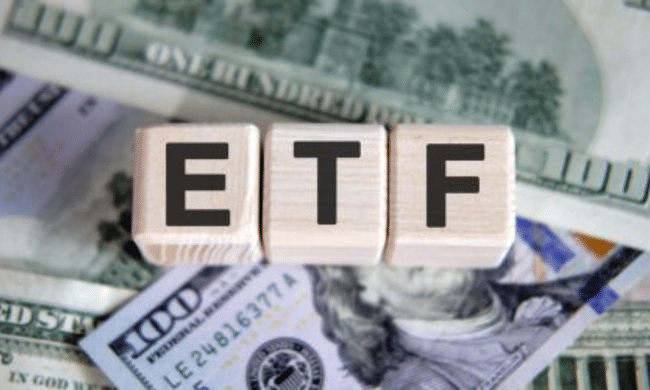Recently, I have started to perceive quite often in my surroundings a question about which there are disputes. Is it better to choose an accumulation ETF or a distribution ETF for your portfolio? So I decided to contribute my perspective to this topic as well.

Exchange Traded Funds (ETFs) are investment vehicles that allow investors to easily and efficiently invest in different markets and sectors. ETFs are traded on an exchange like stocks and track the performance of a particular index or sector. Investing in ETFs offers a number of advantages such as portfolio diversification, low costs, liquidity and transparency. There are two basic types of ETFs: distribution and accumulation. In this article, we will compare these two types and find out which one is better for you.
https://www.youtube.com/watch?v=rh6iY9W44k8
Distribution ETFs
Distribution ETFs are funds that regularly pay dividends earned from investments in stocks. Dividends are paid to investors based on the shares they hold in the ETF. This type of ETF may be suitable for investors who are looking for regular and stable income from their investments.
The benefits of investing in a distribution ETF include:
- Regular dividend income that can be used for other investments or as a source of passive income.
- Flexibility in dividend reinvestment decisions, where the investor can choose whether or not to reinvest dividends.
- The ability to invest in companies with higher dividend yields that could provide a better long-term return.
Disadvantages of investing in a distribution ETF:
- Higher tax burden due to regular dividend payments that are taxed as income.
- The need to track and manage dividend payments, which can be time consuming and require increased attention.
Examples of distribution ETFs: Vanguard High Dividend Yield ETF $VYM, Global X SuperDividend ETF $SDIV.
Accumulation ETFs
Accumulation ETFs are funds that automatically reinvest dividends back into the fund, increasing the value of the investment. These funds do not pay dividends, which simplifies investment management. Accumulation ETFs may be suitable for investors who focus on long-term growth and capital appreciation.
Benefits of investing in an accumulation ETF:
- Comprehensive dividend reinvestment that can increase long-term investment returns through the compounding effect.
- Lower tax burden as no dividends are paid and therefore taxation is reduced while holding the investment.
- Easier management of the investment as there is no need to monitor and deal with dividend payments.
- Suitable for investors who prefer growth strategies and are looking for longer term investments.
Disadvantages of investing in an accumulation ETF:
- Lack of regular dividend payments that could be used as a source of passive income or to cover expenses.
- Less control over dividend reinvestment because reinvestment is automatic and cannot be adjusted to individual preferences.
Example of an accumulation ETF: Vanguard FTSE All-World UCITS ETF (Acc).
It is also possible to generate income for retirement using these accumulation ETFs, but there is a catch. You receive retirement income from this type of ETF by selling a certain number of shares each time, which gives you a "dividend." The problem is that you have a limited number of stocks in your portfolio, so this method cannot be applied indefinitely. In addition, stock markets are volatile, so you may have to sell more shares one day and fewer the next, which can mess up your plans and your calculations for the future.
Comparison of benefits and taxation in the Czech Republic
Distribution and accumulation ETFs have advantages and disadvantages that you need to consider when deciding which one to invest in. In terms of taxation in the Czech Republic, dividends from a distribution ETF are taxed as income, while the tax burden is lower for an accumulation ETF because no dividends are paid. The proceeds from the sale of both distribution and accumulation ETFs are taxed as capital income.
For investors seeking regular income and more control over dividend reinvestment, distribution ETFs may be more appropriate. On the other hand, for investors looking for long-term growth and easier investment management, accumulation ETFs may be a better choice.
Conclusion
So, if I had to summarize this topic in some simple way, it is very difficult to answer because it is very individual. But I can raise one consideration. With distribution ETFs, we have to pay taxes on dividends. It's more or less a tax for the greater certainty and security of having the money in our pocket right away. With an accumulation ETF, we do not pay taxes, but we also take a little bit more risk here, where we do not know how the markets will develop in the future.
So the decision between distribution and accumulation ETFs depends on individual investor preferences and needs. A distribution ETF offers regular dividend income and greater control over reinvestment, while an accumulation ETF focuses on long-term growth and simpler investment management. When choosing between these two types of ETFs, it is important to consider tax considerations in the Czech Republic, individual investment goals and strategies, as well as factors such as investment time horizon, risk tolerance and the need for passive income.
NOTICE: I am not a financial advisor, and this material does not serve as a financial or investment recommendation. The content of this material is purely informational.
Thanks for the comparison, I would go for the accumulation ETF because it will be a long term investment for me for more than 30 years. Then I would roll the money into a distribution ETF to give me a regular passive income. Recently a relative asked me (age 50+) what he should do to have some sort of normal life in retirement. In this case I recommended a distribution ETF, what is your opinion on this? And what is your plan for retirement?